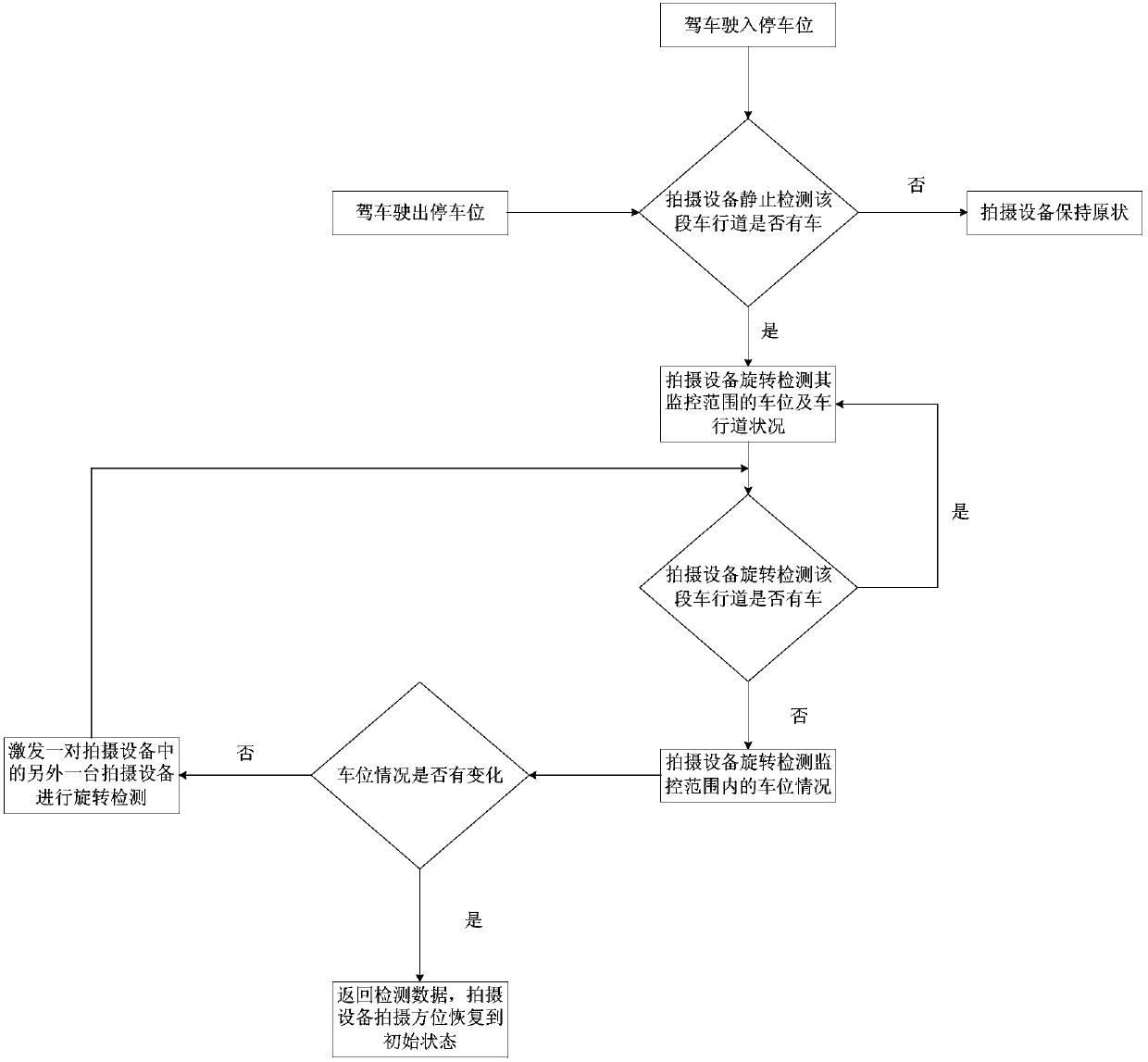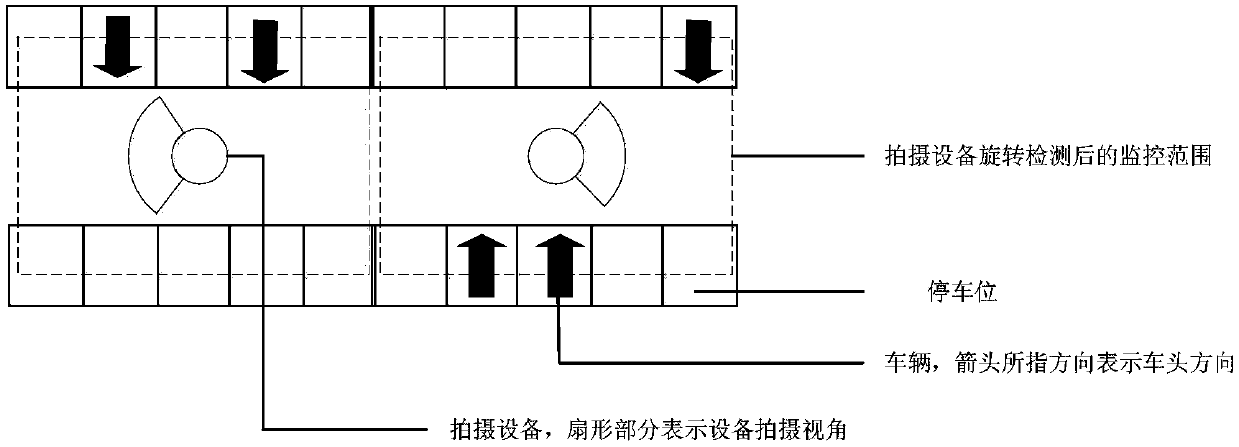Parking stall detection method based on shooting equipment layout
A technology for shooting equipment and parking space detection, which is applied in traffic flow detection and indicating the direction of each vacant space in the parking lot. It can solve the problems of low contribution to the intelligent parking system, small amount of information detected and fed back, and high system complexity. Real-time Efficient monitoring, reduced deployment costs, and good timeliness
- Summary
- Abstract
- Description
- Claims
- Application Information
AI Technical Summary
Problems solved by technology
Method used
Image
Examples
Embodiment 1
[0053] Combine Figure 4 In this example of the present invention, the vehicle enters the parking lot from the entrance, travels through the monitoring range of the No. 1 device, and parks the car into the parking space within the monitoring range of the No. 2 device. It can be seen that as soon as the vehicle enters the parking lot, it will be detected by the No. 1 device, and the No. 1 device will turn on the rotation detection to continuously detect the status of each parking space within its monitoring range and the status of the roadway. When the vehicle moves out of the monitoring range of the No. 1 device, the No. 1 device stops the detection and returns the last detected data. Because the No. 1 device first detects that there is a car and then detects that there is no car, it will trigger the adjacent car in the same lane. No. 2 equipment rotation detection. When the vehicle moves out of the monitoring range of the No. 1 device, due to the initial orientation of the No....
Embodiment 2
[0056] Combine Figure 5 In this example of the present invention, the vehicle enters the parking lot from the entrance, drives through the monitoring range of the No. 1 device, and parks the car into the parking space within the monitoring range of the No. 5 device. It can be seen that as soon as the vehicle enters the parking lot, it will be detected by the No. 1 device, and the No. 1 device will turn on the rotation detection to continuously detect the status of each parking space within its monitoring range and the status of the roadway. When the vehicle moves out of the monitoring range of the No. 1 device, the No. 1 device stops the detection and returns the last detected data. Because the No. 1 device first detects that there is a car and then detects that there is no car, it will trigger the adjacent car in the same lane. No. 2 equipment rotation detection. In the same way, the No. 2 device triggers the rotation detection of the No. 3 device, thus forming a combination ...
Embodiment 3
[0059] Combine Image 6 The example of the present invention is that the vehicle drives out of a parking space within the monitoring range of the No. 2 device, drives through the monitoring range of the No. 1 device, and finally leaves the parking lot. Because in the combination of devices 1, 2, and 3, the initial shooting position of the intermediate device, that is, device 2, is not required, so at this time the vehicle drives out of the monitoring area of device 2 to the monitoring area of device 1 , May or may not be detected. Such as Figure three , The initial shooting position of the No. 2 device will not detect the driving out of the vehicle, but when the vehicle appears within the monitoring range of the No. 1 device, the No. 1 device will rotate to detect the parking space it is responsible for, and the parking space information will not change if there is no change. Return data. When the vehicle leaves the range of the No. 1 device, the No. 1 device will trigge...
PUM
 Login to View More
Login to View More Abstract
Description
Claims
Application Information
 Login to View More
Login to View More - R&D
- Intellectual Property
- Life Sciences
- Materials
- Tech Scout
- Unparalleled Data Quality
- Higher Quality Content
- 60% Fewer Hallucinations
Browse by: Latest US Patents, China's latest patents, Technical Efficacy Thesaurus, Application Domain, Technology Topic, Popular Technical Reports.
© 2025 PatSnap. All rights reserved.Legal|Privacy policy|Modern Slavery Act Transparency Statement|Sitemap|About US| Contact US: help@patsnap.com



